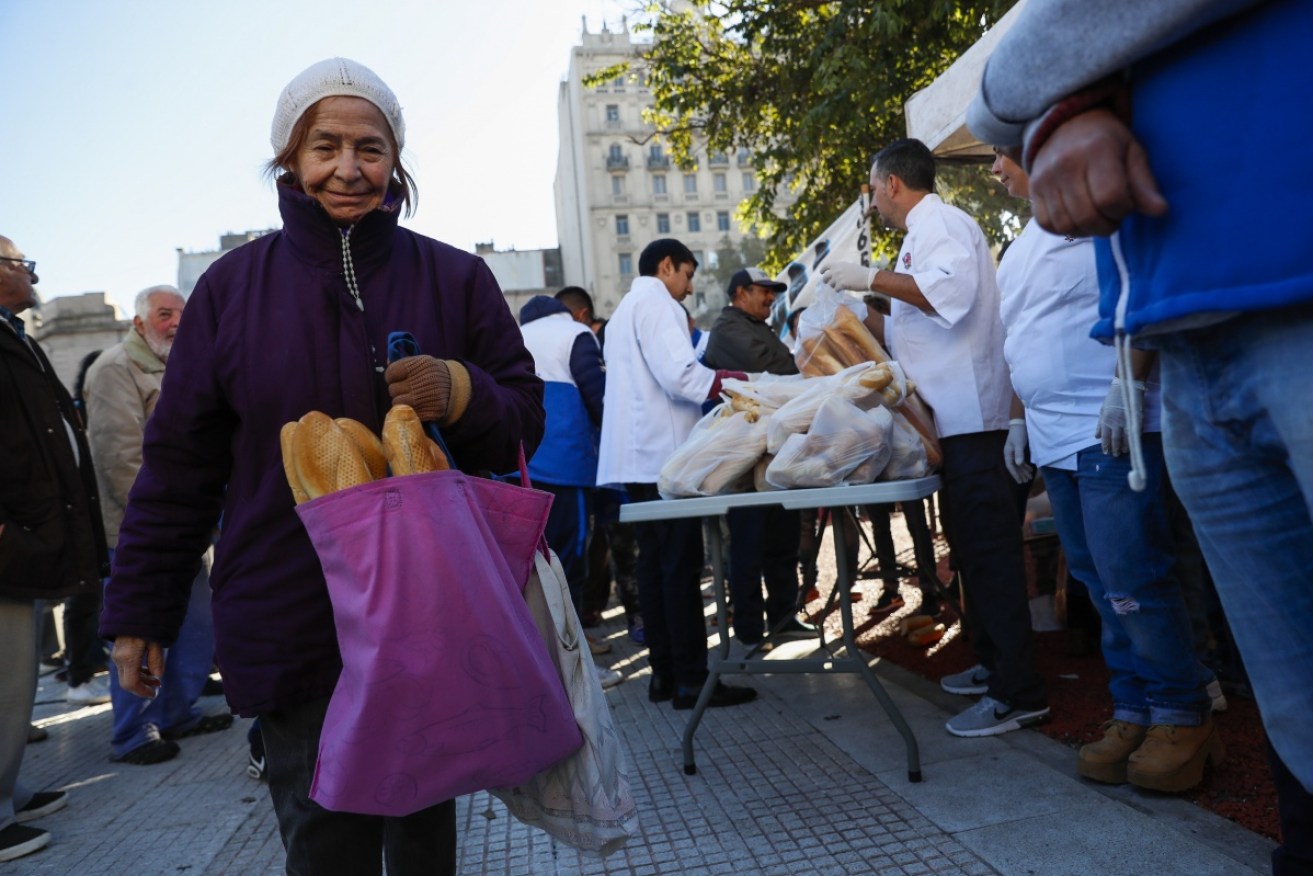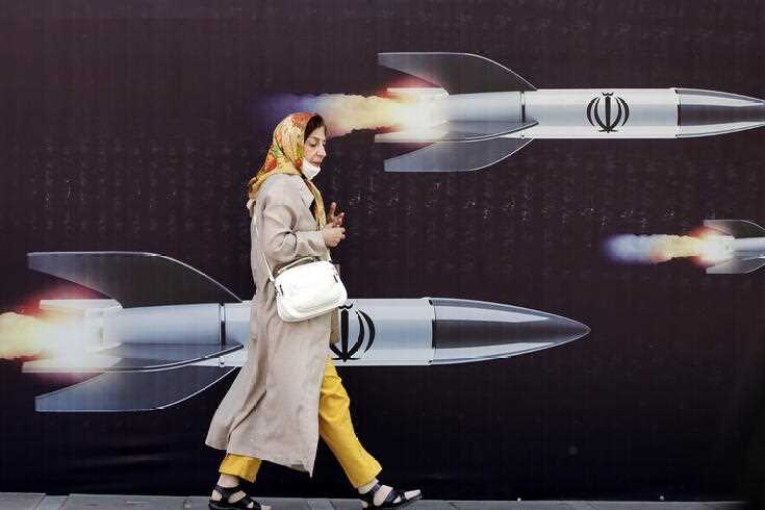The IMF’s $66 billion do-or-die effort to get Argentina back on its feet


Argentinian bakers protest by giving away 5000 kilos of bread due to the rise in in flour prices. Photo: AAP
The International Monetary Fund has put up $US50 billion ($66.1 million) to rescue Argentina from long-standing economic oblivion. It’s the biggest loan in the IMF’s history.
Last month, Argentine banks raised interest rates to 40 per cent – to prop up a plummeting peso – and inflation now runs about 28 per cent.
What remains of the middle class is once more at the edge of a cliff.
Among its self-inflicted woes, Argentina routinely borrows too much money – and is woefully reliant on low interest rates in the US.
But rates are lifting and the US dollar is getting stronger.
The IMF pledge is designed to pay off that debt – the $US50 billion is being offered as a line of credit over three years, subject to board approval.
To pay its bills, the Argentine government for years has relied on its central bank to just print more money – a disastrous strategy that has predictably fuelled inflation.
This will finally stop under conditions in the bailout deal.
Argentine President Mauricio Macri announced last month that he’d be asking the IMF for help – but the $US50 billion was almost twice as much as the markets and pundits were expecting.
Most figured the IMF would pony up about $US30 billion ($39.6 billion).
The bigger commitment is seen as a do-or-die effort to get Argentina out of debt and back on track for good.
Meanwhile, developing economies such as Turkey, Indonesia and Mexico could soon be in need of an IMF boost – in good part because of US President Donald Trump’s tariffs and looming trade war. Investors have pulled out.
From hero to zero
Argentina has also suffered because of global conditions – but more chillingly, its economic troubles are largely routed in nationalist, populist leaderships and protectionist policies.
What was one of the world’s richest countries a century ago is now a warning of where you an end up with a Trump-style leader at the helm for too long.
Argentina should be humming along. It should be another Australia.
The country’s fundamentals are good: Great agricultural and mineral resources, diverse industries and a population that can read and write.
But it’s an unhappy population, and one hostile to the IMF.
Many still blame the IMF for the depression that decimated Argentina in 2001.
When Argentina defaulted on its sovereign loan – $US93 billion ($122.8 billion), the biggest in history – the IMF pulled the plug and said no to a further bail-out.
The middle class was wiped out and poverty became an overwhelming shadow. When President Macri announced he was talking to the IMF, the streets of Buenos Aires once more filled with protesters.
Argentinians have been done over by a national congress full of members that had the power of veto over reforms that might work against their interests and wealth.
There was also a tendency of politicians – the entire Congress — to take random holidays.
As the Brookings Institute notes: “When lenders approved an emergency $8 billion package for Argentina in August 2001, congressional leaders announced that the crisis was over and declared a recess – despite a backlog of 900 bills.”
At that time, a Pricewaterhouse-Coopers survey estimated that corruption and opaque regulations cost Argentina $14 billion in forgone foreign investment annually.
The World Competitiveness Report currently ranks Argentina 92 out of 137 world economies – slightly ahead of Nicaragua and Cambodia, but trailing Kenya and Namibia.
Transparency International ranks it 95 out of 176 countries – trailing Liberia, Zambia and Albania in terms of good governance.
This poses the question: How are the markets responding to the IMF laying its biggest-ever bet on Argentina?
Ever hopeful, buoyed because there’s a lot of money involved – and because doing something now just might head off a collapse that could easily become contagious.
As one global strategist told the Financial Times: “It’s better to go now than after the recession kicks in. If you are going to have a problem, it is better to fix it as soon as possible.”








